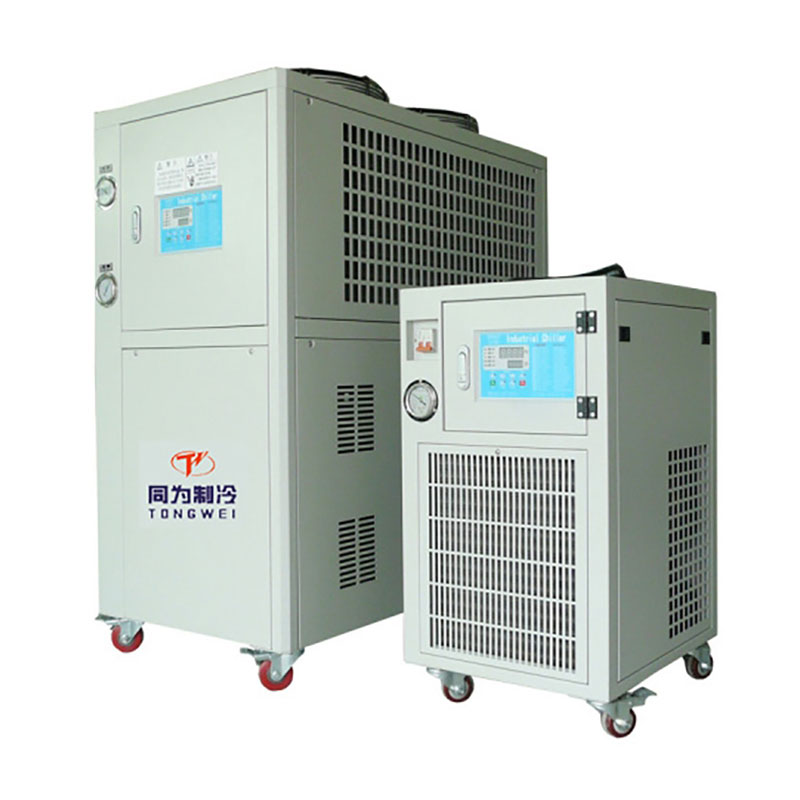The Benefits and Applications of Industrial Air-Cooled Chillers
2025-04-22
An industrial air-cooled chiller is an essential piece of equipment used in many industries for temperature regulation and cooling processes. These chillers are designed to remove heat from a system and dissipate it into the air through the use of heat exchangers, compressors, and fans. Unlike water-cooled chillers, which rely on water as a cooling medium, air-cooled chillers use the surrounding air to reject heat, making them particularly suitable for applications where water availability is limited or where water-based cooling systems are impractical.
The primary advantage of an industrial air-cooled chiller is its simplicity and ease of installation. These units do not require a cooling tower or complex plumbing systems, making them a more straightforward solution for cooling large industrial spaces, manufacturing processes, and HVAC systems. They are also easier to maintain compared to water-cooled chillers, as there are no issues with scaling, corrosion, or the need for water treatment.
Industrial air-cooled chillers are available in a variety of sizes and capacities to meet the cooling demands of different operations. They can cool a wide range of fluids, including water, glycol, or other cooling solutions, depending on the requirements of the application. These chillers are commonly used in industries such as pharmaceuticals, food and beverage, plastics, chemical manufacturing, and metalworking, where precise temperature control is crucial for maintaining product quality and process efficiency.
The efficiency of an industrial air-cooled chiller is largely determined by its design, including the compressor type, heat exchanger surface area, and fan performance. Modern units often feature variable-speed fans and energy-efficient compressors, which help reduce energy consumption while maintaining optimal cooling performance. Some units are also equipped with advanced control systems that allow for precise monitoring and adjustment of temperature settings, ensuring that the system operates within its optimal range.
One of the key considerations when selecting an industrial air-cooled chiller is the environmental impact. These units are designed to operate in a wide range of ambient temperatures and are often built with environmentally friendly refrigerants that minimize the risk of ozone depletion and global warming potential. The design of the chiller, including its air filtration systems, is also important to ensure that the air passing through the system remains clean and free from particulates, which can affect the unit's performance.
In addition to their cooling capabilities, industrial air-cooled chillers also offer durability and reliability, providing consistent performance over long periods of time. Proper maintenance, such as cleaning air filters, inspecting fans, and checking refrigerant levels, is essential to ensure that the system continues to operate efficiently and effectively. By reducing downtime and maintenance costs, air-cooled chillers can contribute to improved productivity and lower operational expenses.
Overall, industrial air-cooled chillers provide an efficient, cost-effective, and reliable solution for cooling in various industrial settings. Their ease of installation, low maintenance requirements, and ability to perform in diverse environments make them an indispensable tool for businesses looking to maintain optimal operating conditions while minimizing environmental impact and energy consumption.



